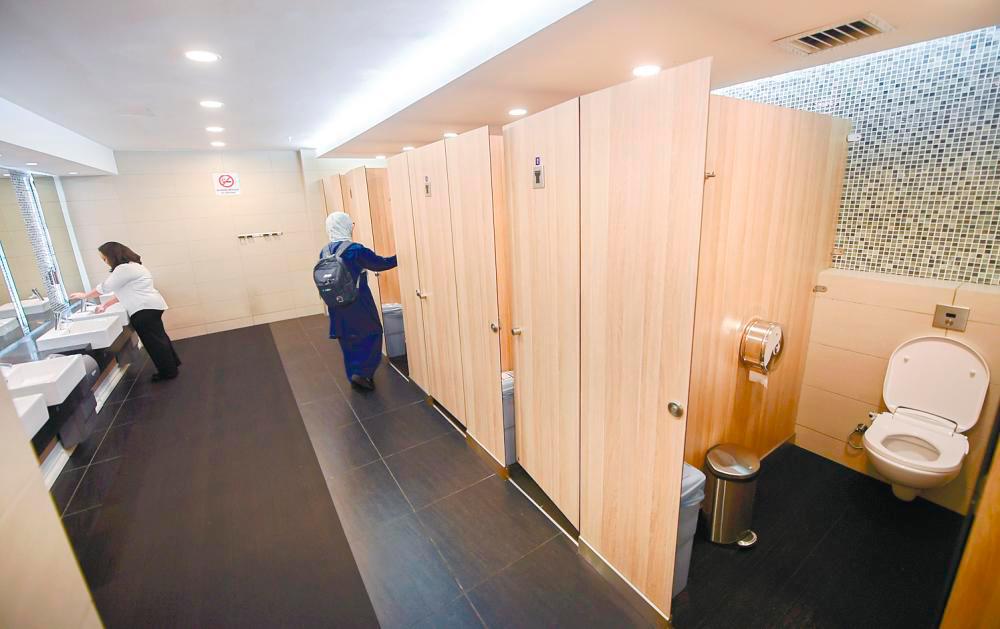ALTHOUGH many foreign visitors to Malaysia have nice things to say about the country, they are appalled at our public toilets and those in shops and eateries.
Despite numerous campaigns promoting clean toilets, we have not achieved much, and the issue of poor toilet culture remains evident.
One only has to use our public toilets to realise how filthy they are. Even toilets in shopping complexes, for which the public has to pay to use, are not well-maintained and odourless.
Similarly, toilets in most eating establishments and restaurants are also not clean. While food operators will find ways to improve the quality of their food, they often overlook the cleanliness of the toilets.
It all boils down to the question of maintenance, usage and the culture of cleanliness.
With the exception of those along the North-South Expressway, the public toilets along our highways are generally in poor condition, leaving ample room for improvement.
On one hand, the problem arises from inadequate maintenance, while on the other, there is the issue of users who have not learnt how to use public toilets properly. Additionally, there is the problem of vandalism of public toilets.
The lack of maintenance has led to dysfunctional toilet door locks and missing hooks/hangers inside some cubicles.
It is time the public is educated on proper toilet usage. There is also the need to instil a culture of cleanliness to ensure user-friendly facilities.
In short, we need a toilet revolution to take proactive steps in maintaining clean toilets at all times and prevent leaving them in a dirty state.
We need to revolutionise our perception of toilets. We should not assume that toilets are meant to be dirty and so we need not do anything about it.
On the contrary, we must accept that we can maintain clean toilets consistently, even though they are meant for “dirty business”.
While we are good at developing projects and providing state-of-the-art buildings and equipment, we are often found wanting when it comes to their proper maintenance and functionality.
In the course of my work, I travel all over Malaysia and have frequently visited community halls to attend meetings or seminars only to find that the facilities are in deplorable state, especially the toilets.
However, the issue does not just pertain to toilets. Neglected maintenance and safety concerns also extend to roadside drains, roads, back lanes, public parks as well as bus and taxi stations.
It is time for everyone, including the local authorities, government agencies, the private sector and every Malaysian, to reflect on their shortcomings in the area of safety, service and maintenance, and take action to address them.
Maintenance and service have never been the country’s forte although Malaysia is known as a developing country with world-class infrastructure.
To ensure Malaysia becomes a first-world country with first-world infrastructure, it is also necessary to prioritise world-class service and maintenance practices.
Improving the country’s image is not only the responsibility of the authorities, building owners and the service industry, it is also the duty of every citizen.
Each citizen has to be more civic conscious. They must use public amenities responsibly, refrain from littering and be more safety conscious as well as care for the environment.
These good habits should be instilled and nurtured from young.
In this regard, parents should be good role models for their children.
Tan Sri Lee Lam Thye
Kuala Lumpur









